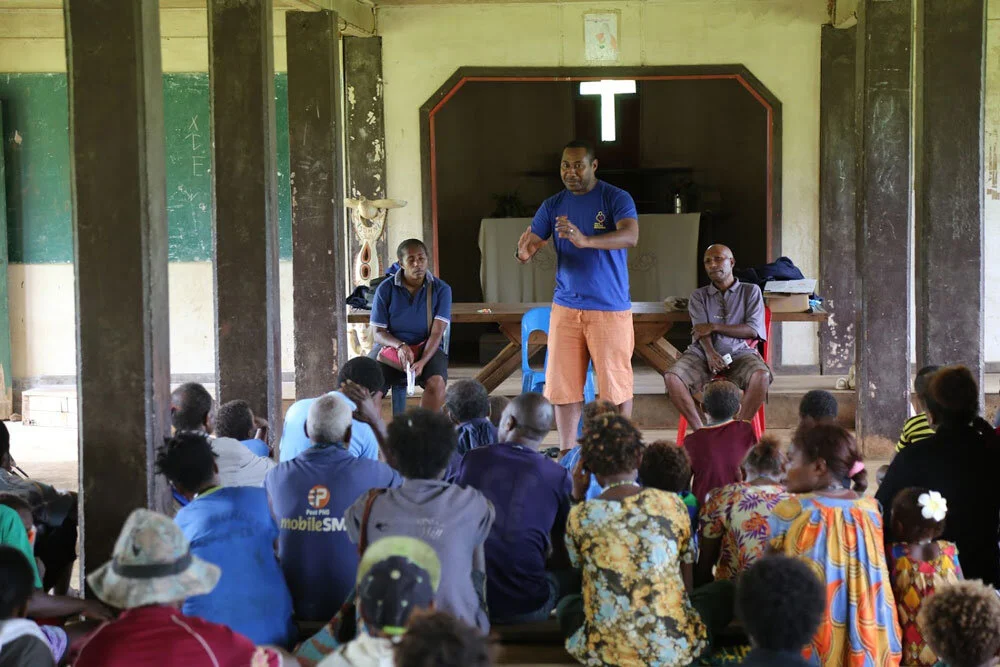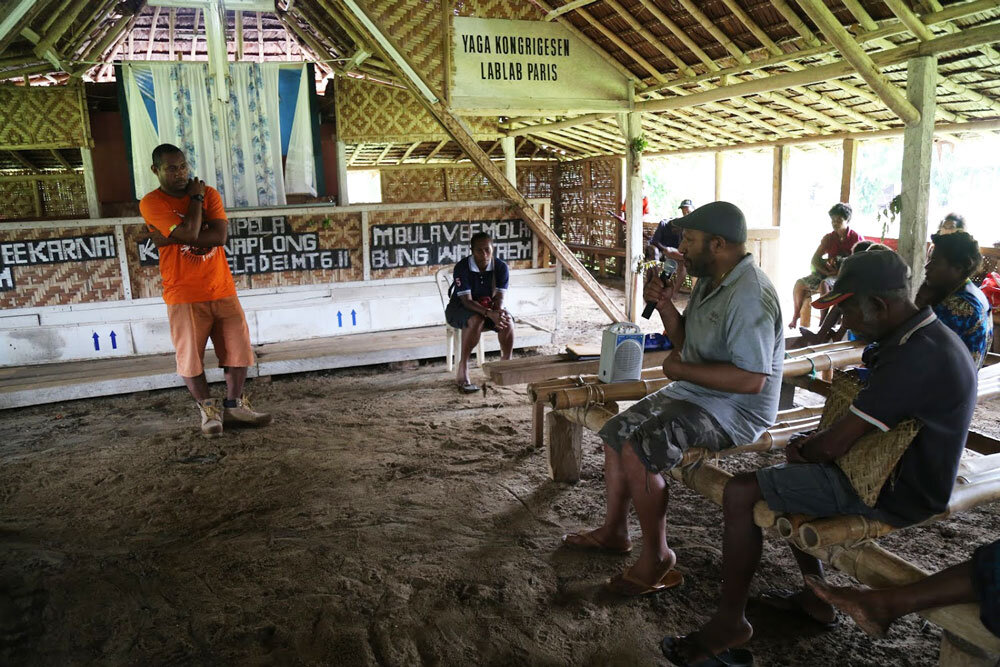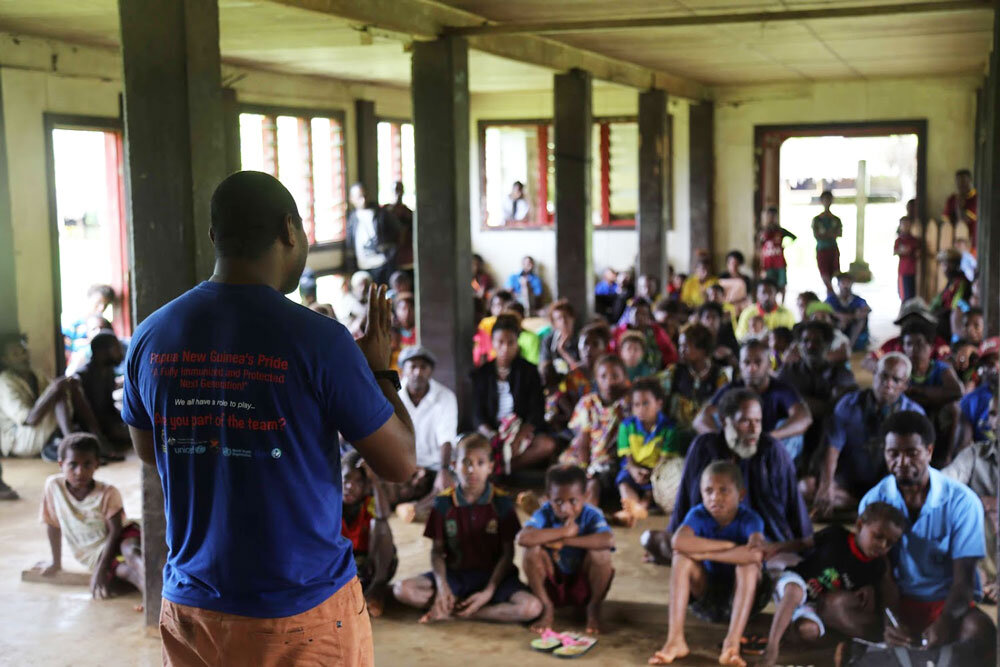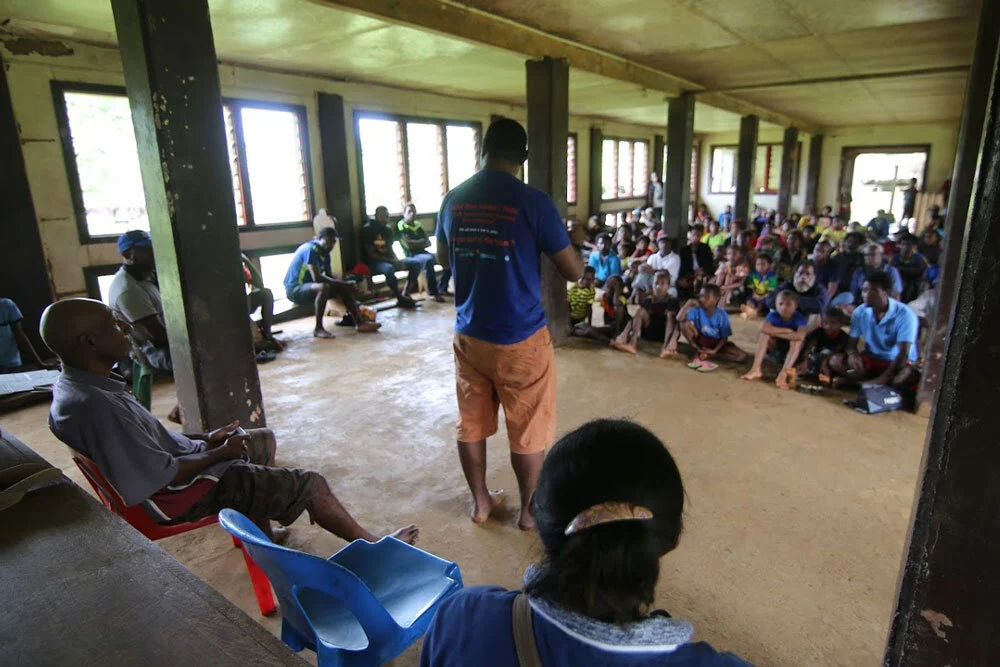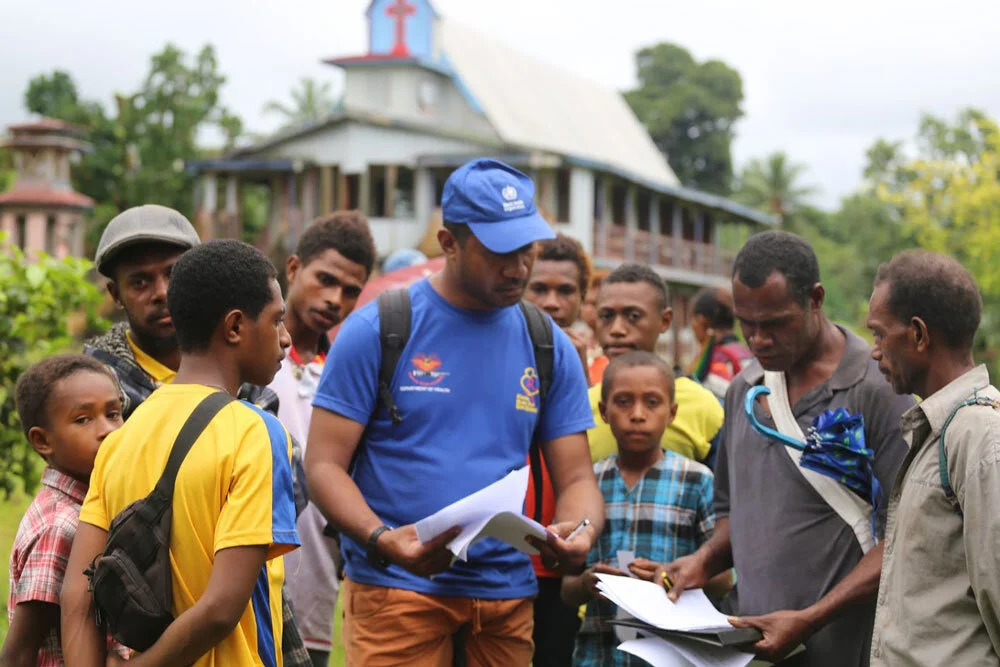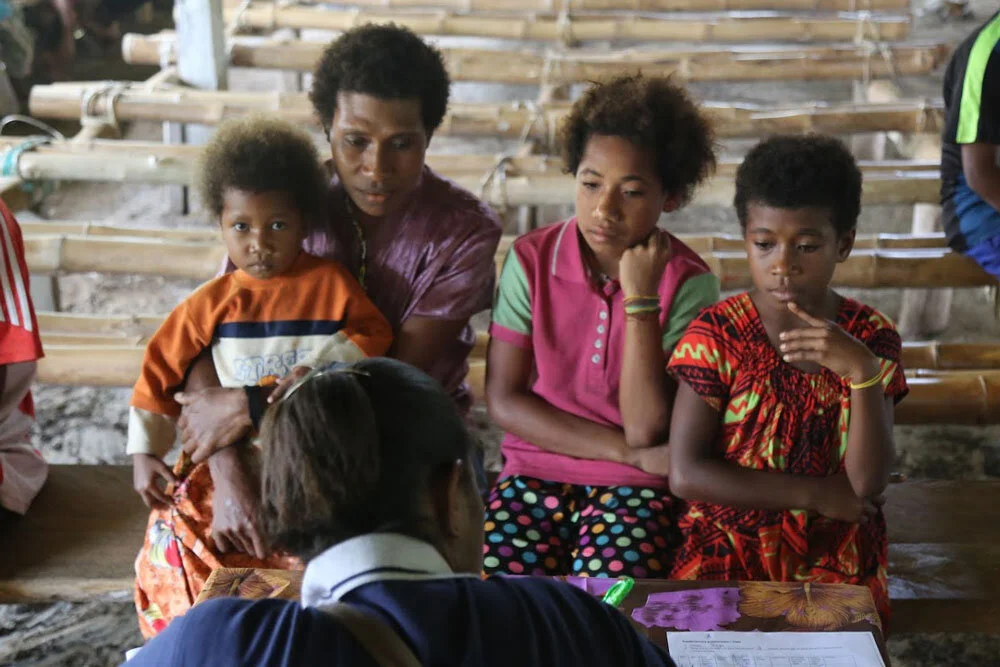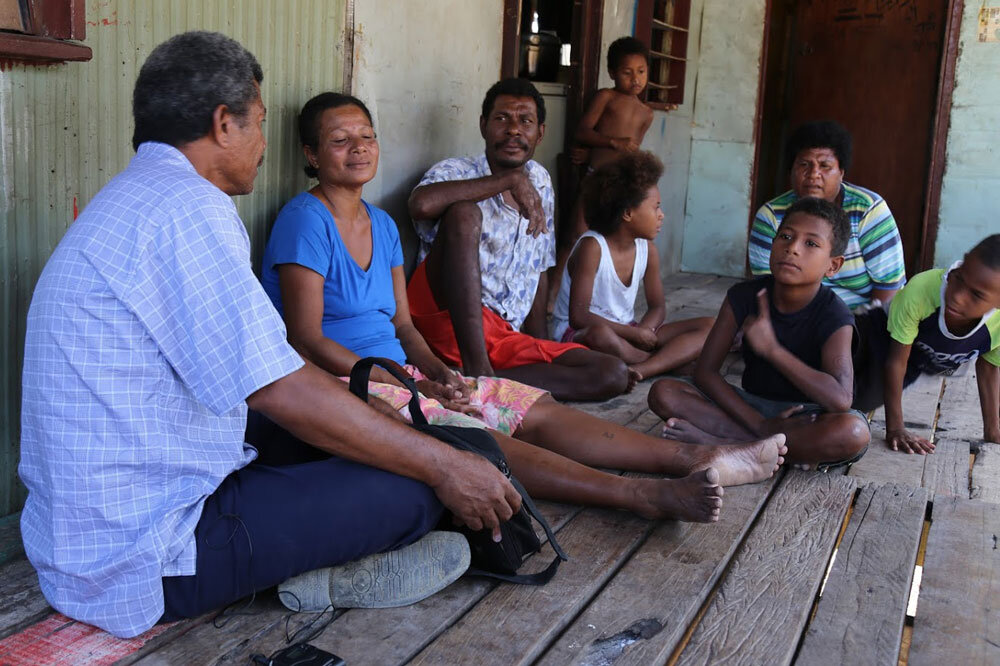Community Engagement & Community Centred Response
Communities are experts in their own lived experience; aware of priority local problems and best positioned to address these with locally-informed solutions. As a team, we firmly believe that community members are integral leaders of change, and aim to equip frontline Field Epidemiology Training (FET) fellows and community leaders to effectively work with communities to address health challenges and promote wellbeing.
In the culturally and linguistically diverse contexts of Papua New Guinea and Solomon Islands – with more than 800 and 70 languages, respectively – we teach technical field epidemiology skills as well as the ‘soft skills’ required for fellows to adaptively apply these skills in a range of contexts that best address the needs of the local community. The FET programs centre public health impact; fellows designing and implementing intervention-based projects that address an identified public health need with an appropriate solution.
Rapid Response Team (RRT) training integrates a community engagement module informed by the knowledge, experience and lessons learned of field epidemiology leaders from Papua New Guinea and community leaders from Solomon Islands.
The Frontline program in PNG also includes a very strong emphasis on community engagement, with community consultation taking place prior to the training in order for Frontline participants to understand the needs of local community and how to best address these.
We also work directly with local partners to support community leaders to lead strategic engagement within their own communities. Throughout 2020 and into 2021, Baru Conservation Alliance worked with remote communities in East Kwaio, Solomon Islands to increase awareness of COVID-19 and measures that communities can take to protect themselves, and to be prepared for COVID-19 and other health emergencies.
The COVID-19 pandemic – with emphasis on many non-pharmaceutical community-based control measures, such as physical distancing and hygiene – has highlighted the importance of working with communities to find solutions that are feasible, culturally acceptable and safe. As the pandemic continues, and other ongoing health security threats such as tuberculosis and malaria impact people’s lives, meaningful engagement with community is critical to ensure that no one is left behind.
